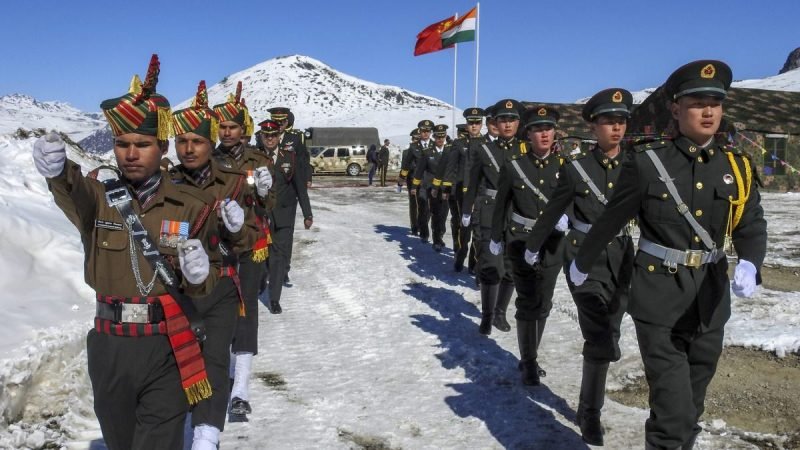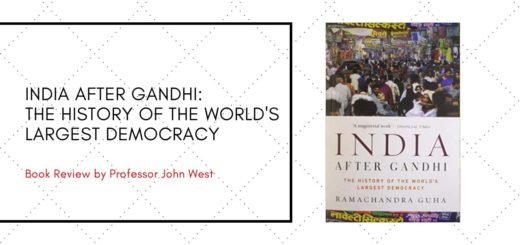Remember – War is not child’s play

“How about a surgical air strike in Tibet on Chinese troop establishments to avenge the death of our 20 brave jawans including a commanding officer? After all, our motto is ‘ghar me ghus kar marenge’. Or is all our bravado only for Pakistan?”
The statement as a tweet message appeared on social media on 17 June 2020, just two/three days after June 14-15 intervening night bloody LAC skirmish between Indian and Chinese Army nicknamed PLA in which 20 Indian unarmed and disciplined brave army men including their Commanding Officer along with innumerable PLA soldiers, who had come prepared with nail-studded iron rods, lost lives. It is a different matter that Chinese Government has not so far disclosed PLA casualties for reason best known to them, while the sources from the US and Chinese watchers from all around the world place the PLA casualties figure between 35 to 43 much more than Indian casualties apart from opining that the Chinese Communist leadership is shy of disclosing number having been afraid of people reaction back in China mainland for such huge casualties for barren land on the suffocative height of Himalayas.
This author would not have taken the above-quoted statement so seriously if it appeared in the Twitter account of an ordinary Indian citizen, who may be presumed to have an ideological opposition to present regime, or a Pakistani or a Chinese as later two kinds have been very regular with similar kind mocking message in both social and mass media in recent past deserving no serious attention. But since it appeared in India’s one of the senior-most bureaucrat-turn-politician called Mr Yashwant Sinha, now self-estranged from ruling party BJP as he was refused cabinet berth in the government on age ground, and therefore, is seen in almost all opposition camps, I found his tweet most disturbing. Further, Mr Sinha was Finance Minister in Cabinet of former socialist PM Chandra Sekhar in 1990-91 and was Finance and External Affairs ministers in Cabinet of former saffron PM Atal Bihar Vajpayee from 1998 to 2004 with membership in the most powerful government committee call Cabinet Committee on Security (CCS) which discusses and decides all matters from war-gear purchases to top appointments in Armed Forces to budget allocation related to national security, and defence policies. Mr Sinha is not the only one to give this kind of statement. There are many from opposition and civil society who followed him giving this kind of tweet and statement since that bloody night. One Mr Ajai Shukla, a retired Colonel of Indian Army, formerly in DD and NDTV, and nowadays very often seen in TV debates over Galwan clash, writes in Business Standard on 27 July “Modi does not want war with China” despite the known fact that not a single gun was added for long 10 years from 2004 to 2014 in the depleted armoury of India Armed forces which heavily depends on lengthy bureaucratic red-tape tainted import to meet the fighting capabilities with mighty dragon north of Himalayas.
During that period, China has stealthily occupied 680 Sq KM of Indian Territory in Himalaya region without being challenged as highlighted by IIAS-Shimla Director Prof. Makarand Paranjape in his column in the Organiser Weekly recently. Now, my questions are: Are the above-quoted statements in the right prospects? Is this kind of statement/tweet expected from a responsible senior bureaucrat-turn-politician (Mr Sinha) of a nation? For whose consumption these statements have been made in media and public?

Let us discuss the war aspect in the present context in the wake-up LAC skirmish.
War is not a child’s play. In the 21st century highly globalised world, a civilized nation should go to war only when it is left with no option to save its respectable existence among the community of nations. And before going to war, sufficient intelligence about opponent’s strength and weaknesses needs to be collected, and be ensured that all dots are rightly linked and necessary logistics are laid down keeping in mind terrain condition of the battlefield as the terrain in many wars played the decisive role a la the crease in cricket ground. If this is the principle that guides India’s PM Narendra Damodardas Modi decision on the face of Chinese latest aggression in eastern Ladakh and its linked irritating fall-outs in India’s internal politics and civil society debates that too during the reign of Chinese origin Covid19 which has crippled the economy and human activity for last consecutive five months, then he should be applauded for his patience. And it is certain that that will bear fruit. Further, one should not forget not only India has lost brave lives in Galwan Valley but also aggressor with a higher number of soldiers as described above and learnt a lesson for being unfaithful to earlier agreed terms and conditions for border engagement. And since the unfortunate night, sustained negotiations and diplomacy have been found fruitful albeit sluggishly. Who knows the same may be fruitful for returning to the status quo without pulling of the trigger?
Patience may pay with a planned bloody war as seen in 1971 or without a war as seen in Doklam in 2017. It had been exemplified in 1971 when the then Army General Sam Manekshaw popularly known as Sam Bahadur decided the time of waging war ignoring internal political pressure with the sole objective to decisively win the war at the minimum human cost against though with a weak opponent. Yes, it is a known fact that in many cases, strategies misfire. And, in the war, either one side will lose or both parties compromise and withdraw after some days/months/years of fight, but the loss of lives and destruction of property can’t be ruled out. In view of the above, how could a senior politician of the Yashwant Sinha stature make the above-quoted statement which includes provocative verbatim ‘ghar me ghus kar marenge’ the statement PM Modi deservingly made in the wake-up Balakot surgical strike deep inside Pakistan territory against terrorists who are officially designated ‘non-state players’ by Pakistan government?
Note: In the surgical strike on terrorist target in Pakistan soil narrated with verbatim ‘ghar me ghus kar marenge’, sincere attempt was made not to touch Pakistan defence and civilian establishments and implemented. This aspect and government strategy, Mr Sinha and his likes seems to have ignored intentionally while criticizing the government in the present context to satisfy their vested interest.

Should Pulwama-Balakot terror attack-cum-surgical strike be compared in the same footing with Galwan skirmish so that Mr Sinha got a logic to instigate government with ‘Ghar me ghus kar marenge‘? Or has Mr Sinha seen an opportunity in Chinese aggression to defeat Modi who has been a successive winner in the battle of ballots? Is political win important than national security and destructive war? If later is in the critics’ agenda, then why it would be wrong on the part of Modi to blame the opposition for facilitating enemy morale, which he has not done so far directly restricting him with the statement that opposition criticisms have been found an echo in enemy statements, in which none but the enemy would have the last laugh?
So far, PM Modi has not commented on opposition’s provocation over Galwan skirmish. Therefore, this column author would like to place here what late Indira Gandhi, described by the then leading opposition leader late Atal Bihari Vajpayee ‘Abhinav Chandi Durga’ (ORF 21 Feb 2019), who led India in Indo-Pak war 1971, told to Lok Sabha on 27 March 1971 “In a serious moment like this, the less we as a government say, I think the better it is”, and in the Rajya Sabha on the same day, she told, “A wrong step, a wrong word, can have an effect entirely different from the one which all intend” for war which was in fact started on 3 December 1971 after long eight months. And General Sam Manekshaw, who led the war, told, “My job is to fight to win”, and he asked for a few months’ time keeping in mind Bangladesh ensuing rainy season terrain which was accepted by the political leaders which in the meanwhile unleashed unprecedented diplomacy in the various world capitals from Moscow to Washington with a stop-over in Bonn, Paris and London in order to build world opinion against the enemy. India’s present government efforts found a lot of similarity with the 1971 situation.
Here, I want to say to Mr Sinha and his friends, who have never led the nation in a war that India has never gone to war with personal ego, and war is not fought in the social media page. And the battles of ballots for government position and battle between the nations for geopolitical domination are not same. Both have got different implications for nations and society. Again one should not forget the reign of invisible enemy called COVID19 exported by China which in the meanwhile manufactured territorial disputes with almost all of its neighbours under the leadership of an ambitious politician with a constitutional mandate to rule China for life. Who knows the export of COVID19 has no hidden strategic agenda? Wish Mr Sinha and his friends be kind to read Indira’s 1971 sermons on the war before commenting during this time of national crisis keeping in mind critical implication of war on a nation and its armed forces, who (later) though fully committed to saving nation’s territorial integrity at any cost.


















